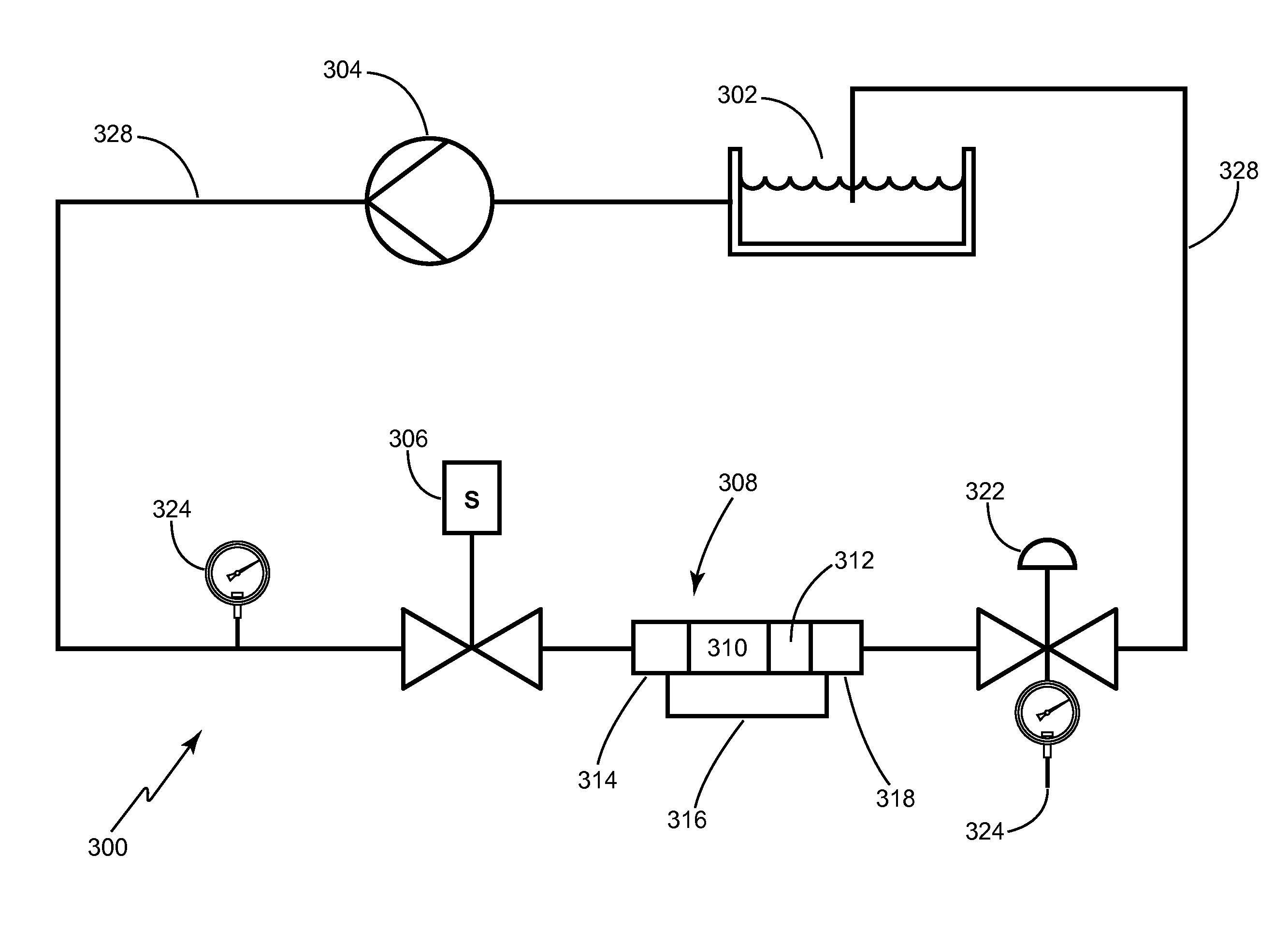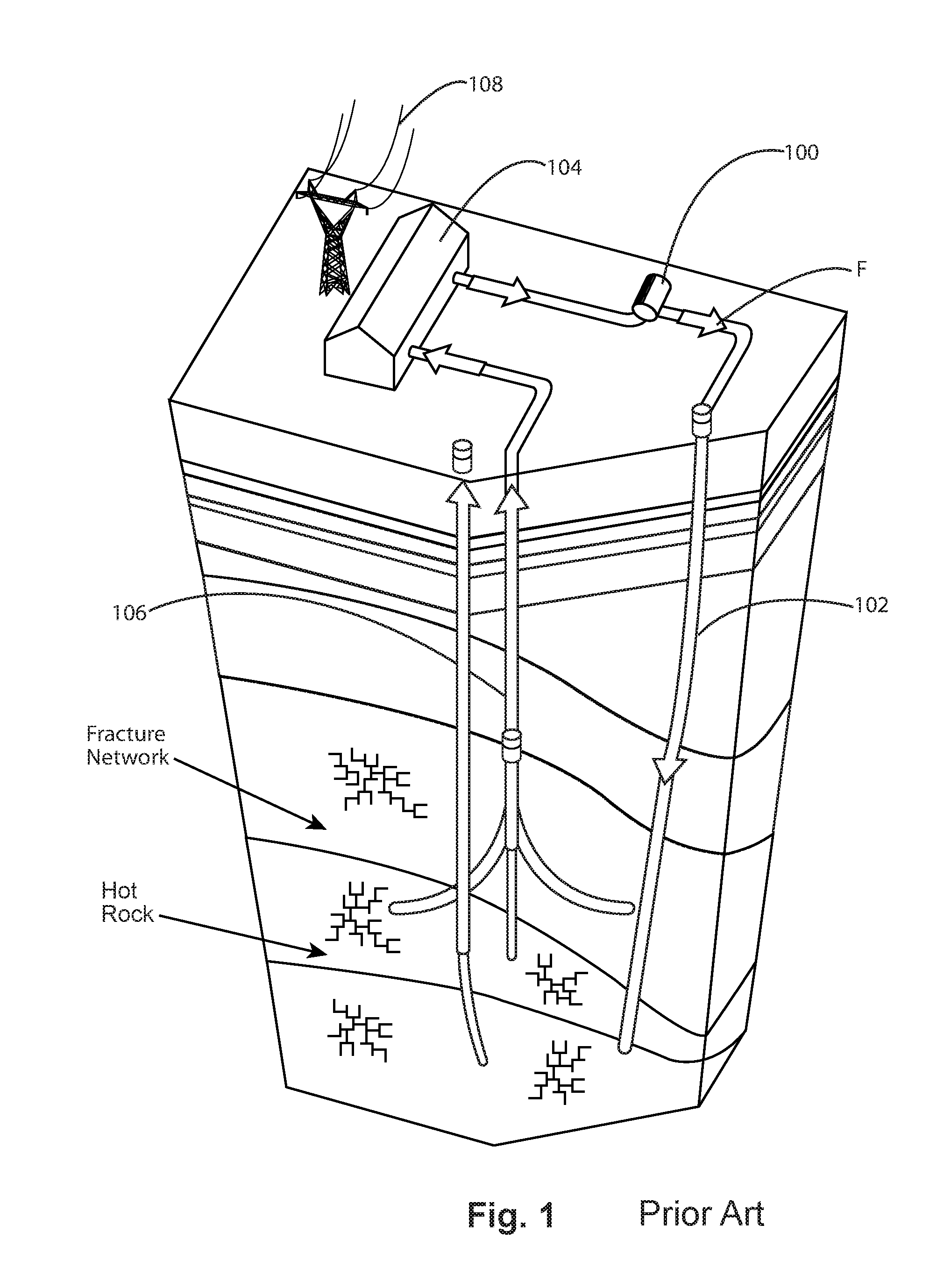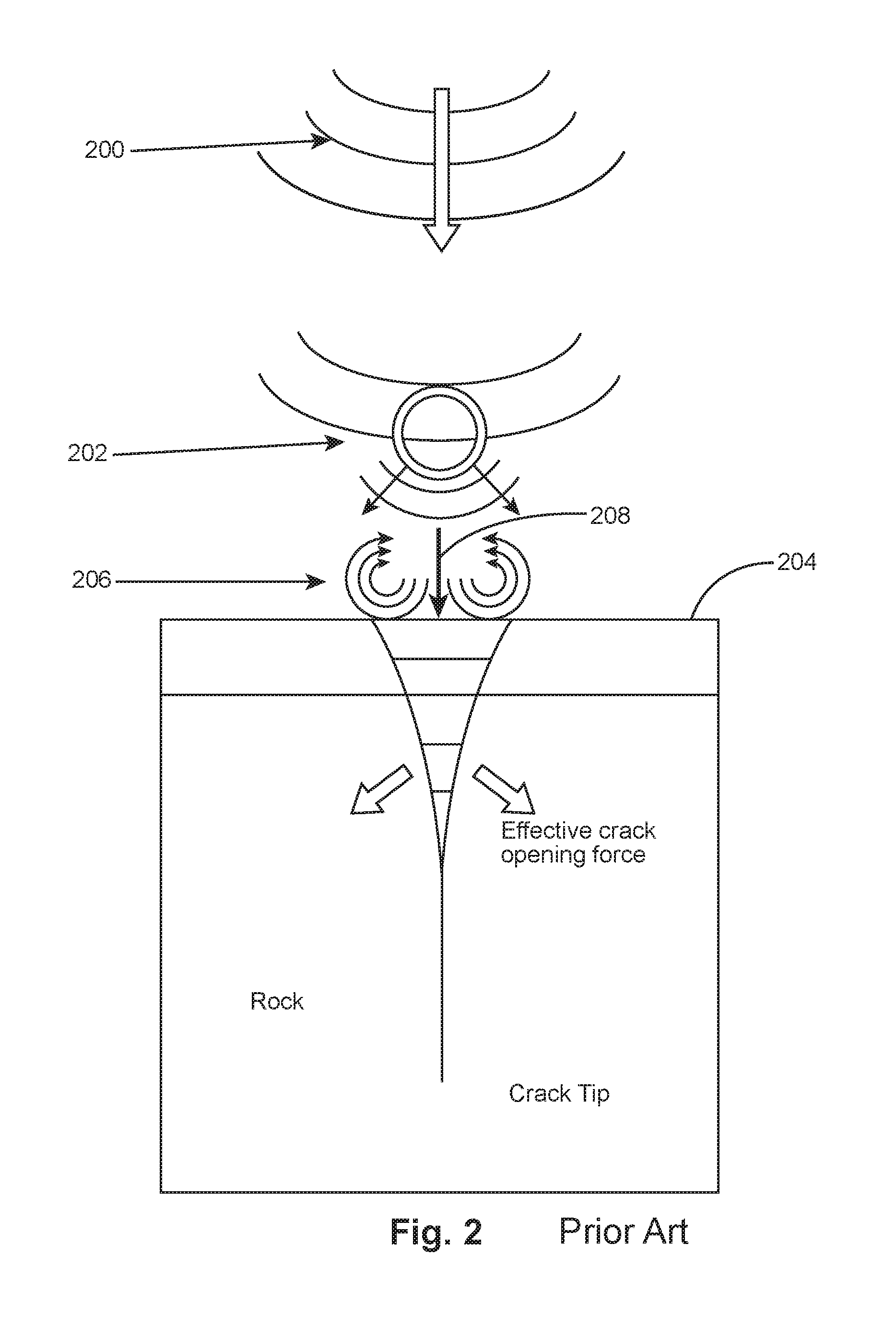Cavitation-based hydro-fracturing simulator
a hydro-fracturing simulator and cavitation technology, applied in the field of geothermal system enhancement, can solve the problems of reducing heat exchange efficiency, avoiding the movement of faults, and avoiding effective control
- Summary
- Abstract
- Description
- Claims
- Application Information
AI Technical Summary
Benefits of technology
Problems solved by technology
Method used
Image
Examples
Embodiment Construction
[0033]With reference now to FIG. 3, an exemplary apparatus 300 for generating a pulsed pressure induced cavitation technique to simulate the hydrofracturing of a specimen will now be described in greater detail. A working fluid (F), such as water, hydraulic fluid, other fluid, or combination of fluids, is stored in a reservoir 302. The reservoir 302 may be an open or closed vessel and may also include means for filtering, adding, removing, and / or monitoring the level of working fluid (F). A pump 304 draws the working fluid (F) from the upstream reservoir 302 and distributes it to one or more downstream control valves 306 at pressures less than or equal to approximately 300 psi (2068.4 kPa), greater than or equal to approximately 300 psi (2068.4 kPa), or greater than or equal to approximately 300 psi (2068.4 kPa) and less than or equal to approximately 2,000 psi (13789.5 kPa). The pump 304 may operate by compressed air or by an electric motor for example. An air operated liquid pisto...
PUM
| Property | Measurement | Unit |
|---|---|---|
| pressure | aaaaa | aaaaa |
| pressure | aaaaa | aaaaa |
| pressure | aaaaa | aaaaa |
Abstract
Description
Claims
Application Information
 Login to View More
Login to View More - R&D
- Intellectual Property
- Life Sciences
- Materials
- Tech Scout
- Unparalleled Data Quality
- Higher Quality Content
- 60% Fewer Hallucinations
Browse by: Latest US Patents, China's latest patents, Technical Efficacy Thesaurus, Application Domain, Technology Topic, Popular Technical Reports.
© 2025 PatSnap. All rights reserved.Legal|Privacy policy|Modern Slavery Act Transparency Statement|Sitemap|About US| Contact US: help@patsnap.com



